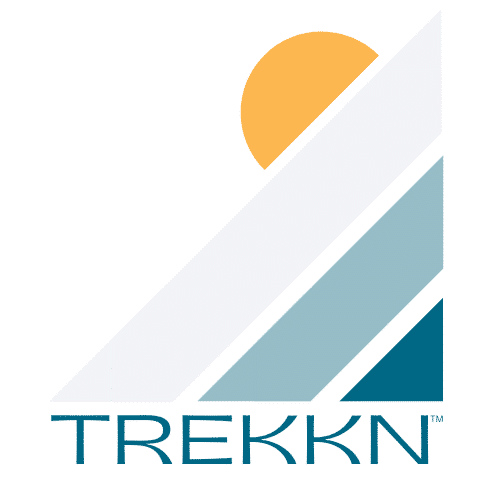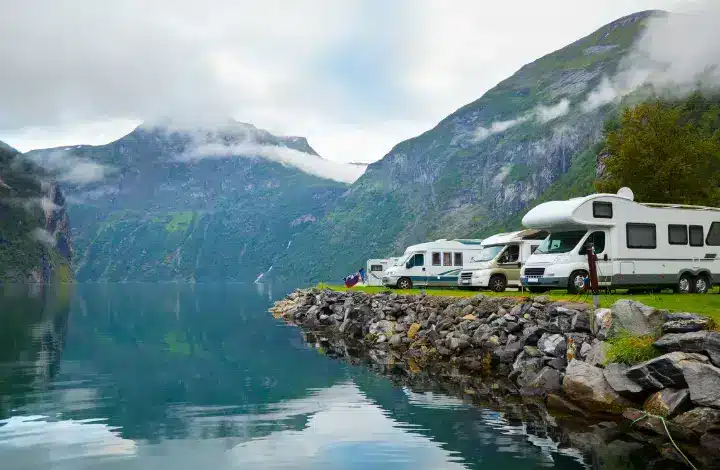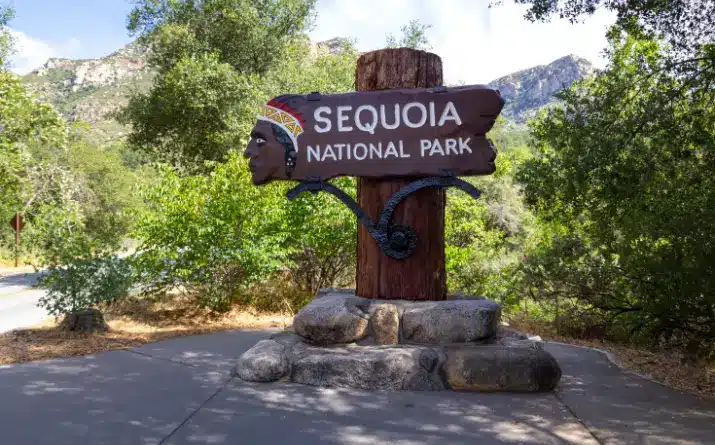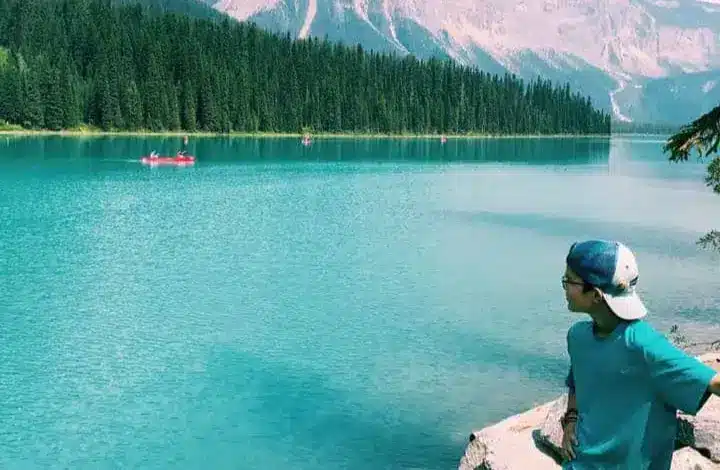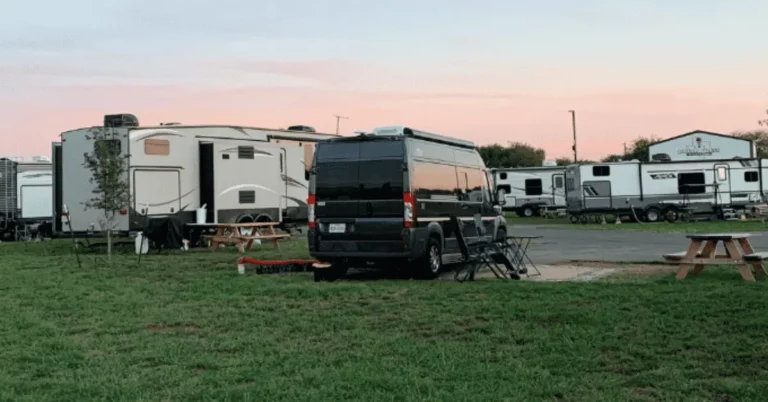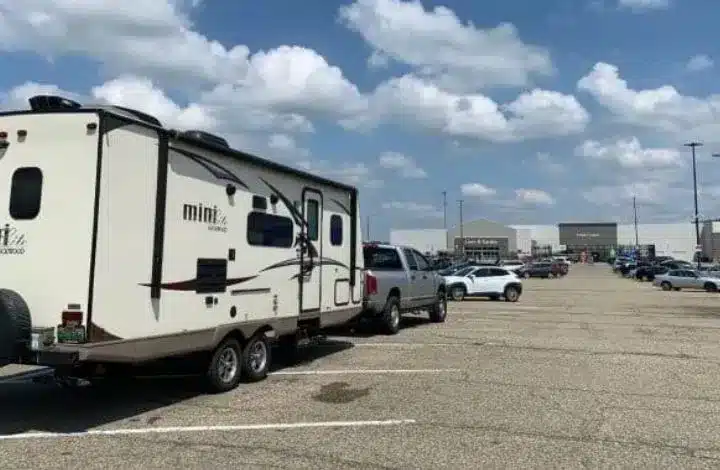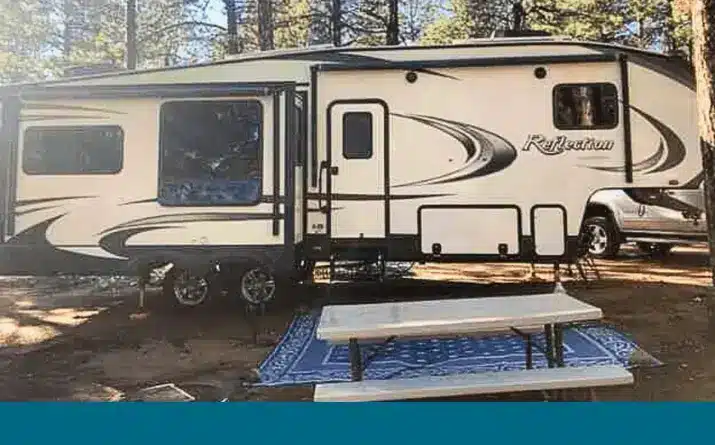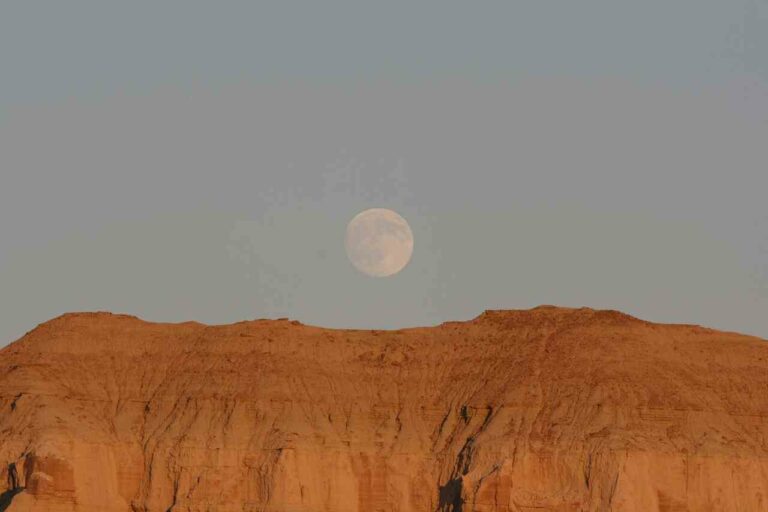The Ultimate Guide: How to Find the Best RV Campsites
RVing is an increasingly popular way to explore the great outdoors. It’s an amazing way to travel. We love the open road, the flexibility, and the freedom. However, traveling by RV also means you need to know how to find the best RV campsites. That’s why I wrote this article.
I leaned on my many years of RVing and camping experience to craft the ultimate guide for finding great RV parks.
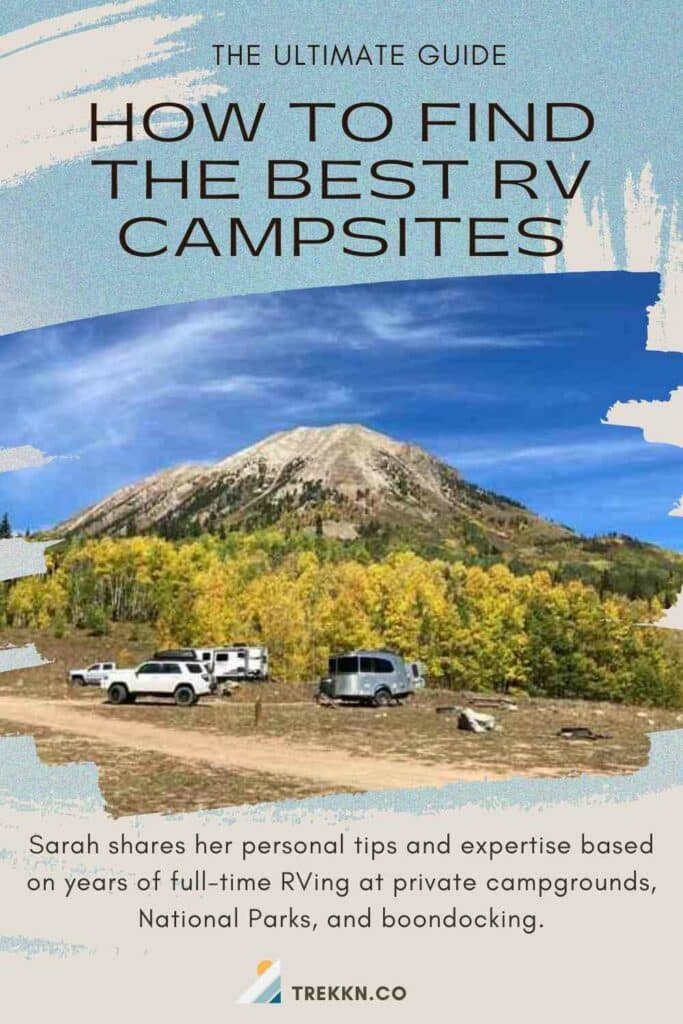
Securing that great spot has turned into something of a competitive sport. Before you imagine a Hunger Games-style showdown, don’t worry. Unless you’re trying to get into a popular national park campground during peak summer months, this article will help you find a top notch campsite wherever you are.
Why am I so confident I can help you? I’ve never had campground reservations or advance plans for popular holiday weekends like the Fourth of July.
Yet, I’ve never ended up without a place to stay on those dates. I have a hard time scheduling out my campsites more than a month or so ahead. Some campgrounds even book up a year or more in advance.
To Find the Best RV Campsites, Know Where to Look
The good news for travelers like me is this: you can always find a great campsite for your RV if you know where to look. (It helps if dry camping is an option for you, but more on that later.)
In this post, I’ll share my top tips after 4+ years of full-time RVing. Read on to learn how to size up your camping options based on your RV capabilities and camping style.
I include a list of great apps and software tools to help you find the best campsite for your RV travels.
Ok, let’s go.
First, Understand Your Personal Style of Camping
Before you start searching for a campsite, take the time to identify what kind of campsite you’re looking for.
3 Types of Campsites
In general, campsites fall into three main categories:
- Private campgrounds and RV resorts: Developed private campgrounds that almost always have amenities such as water, electric, and sewer.
- National, state, or city park campgrounds: Government-run public campgrounds that vary wildly in amenities and accessibility.
- Dispersed camping, also known as “boondocking”: Free camping on public lands, sometimes in marked campsites.
Understand Your Campsite Needs
If you aren’t sure yet what kind of campsite you like best, ask yourself the following questions:
Once you’ve defined your preferred camping style, you can start looking for a campsite that aligns with your preferences.
Here’s a break down of the three campsite categories:
Private Campgrounds and RV Resorts
National, State or City Park Campgrounds
Related Reading
Dispersed Camping or Boondocking
Size Matters: How Big is Your RV?
Fewer Spots Available for Big Rigs
When it comes to choosing a campsite, the hard truth is that size matters. Whether you’re hoping to get into a busy campground or a nice boondocking spot, bigger rigs have a tougher time finding that perfect camping spot.
By comparison, campervans and smaller trailers have fairly easy access to nearly any site, from city parks to remote areas in national forests.
Of course, RVs of any size can access all three of the categories mentioned above, but the point I’m making is important. No matter where you’re camping, if you’re in a bigger-sized rig (say, 30 feet or longer), you’ll need to do more research before you hit the open road.
Fewer campgrounds (especially national and state park campgrounds) can accommodate that size. For rigs ~35 feet or longer, you may even struggle to find a spot in private campgrounds.
Call ahead, read reviews, and make sure you’re reserving a site that can fit an RV of your size, including tow vehicles, towed vehicles, toys, trailers/boats, etc.
My current RV is on the larger size at 33 feet, so I have to do my research before I arrive anywhere – even developed RV campgrounds.
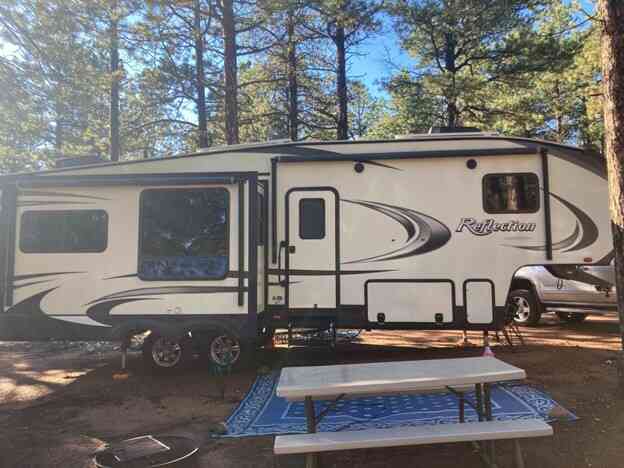
Plan Route Carefully
This goes for route planning, too. Tools like RV Life’s RV Trip Wizard or RV-specific GPS can help you avoid low bridges or narrow, curvy roads that your vehicle can’t handle.
Take it from someone who has ended up in many sticky situations at the hands of Google Maps, and investigate your route before hitting the road.
Big Rigs Can Reach Boondocking Sites
You may think that only campervans or car campers can get to the truly great boondocking spots on BLM land. Well, that’s not at all true.
Certain mountainous areas do have limited access for small vehicles only. However, there is a lot of great boondocking on federal lands that’s accessible to RVs of any size.
Get Extra Help From Apps
I recommend using Campendium. It’s a great app with functionality to filter by big rig-friendly spots.
As with anything big rig-related, be extra careful as you travel through narrow or congested areas. Despite all the extra planning, you may agree that the best places are often found when boondocking.
What’s Your Off-Grid Capability?
If you’re a new RVer and haven’t traveled off-grid before, here’s a quick guide for how to assess whether your RV is ready for a boondocking adventure
Related Reading
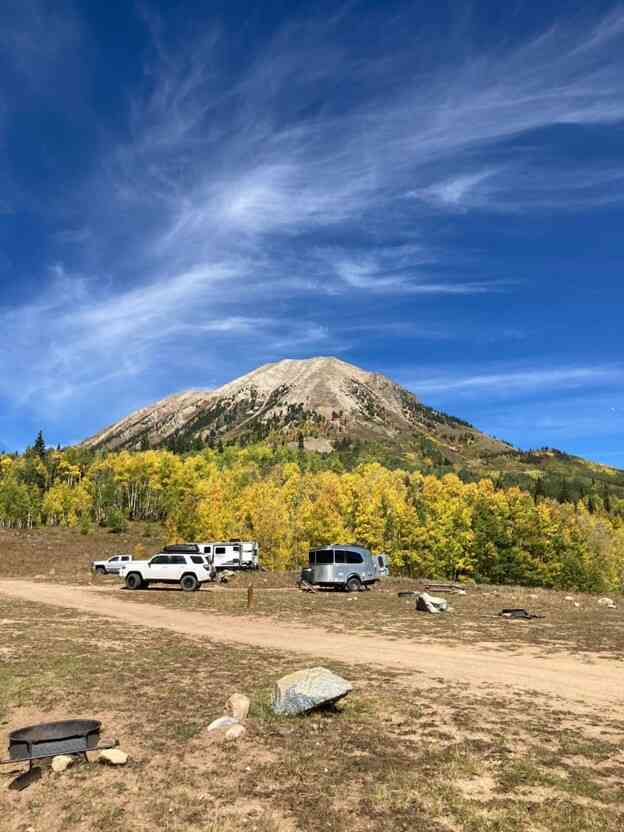
Software Tools Can Make Finding RV Campsites a Breeze
We live in an era of ample technology—which is great news for campers. It means you have a wide range of online resources at your fingertips to help you find the perfect RV campsites.
Below are a few of my favorite software apps and tools that are helpful resources for a full-time RV lifestyle.
Campground Locator Apps
These apps are my favorite place to get input from other serious campers on spots I’m considering, from the fanciest private RV park to rugged dispersed campsites and everything in between.
The best part is most of these have great sorting or filtering functionality allowing you to tailor your search to your personal needs. They provide detailed information on various campsites, including amenities, access, and size restrictions. Play around to find your favorite.
As a general rule, if I don’t have a reservation (either I’m boondocking or not sure which town I’ll be pulling into on a given night), I pick 2-3 potential campsites while I still have Wi-Fi or a good cell signal. That way, if I reach a boondocking spot only to find that there’s no space for me, I already know exactly where to try next.
Mapping Tools
This pro tip will change everything. Use the satellite view on Google Maps to preview and plan your route, including accessible spots to pull off and fuel up while you’re on the road, and check out dispersed camping areas to see if they’re a good fit for your rig.
GPS Coordinates and Route Planning
Plugging the geocoordinates of a boondocking spot (available on the locator apps mentioned above) into Google Earth is another great way to check out spots that might fit your rig.
This is a great resource and a crucial step for identifying dead ends vs. roads with turnarounds. You want to know this information in advance in case you don’t find a spot and need to get back out. Map out your turn-by-turn directions to ensure you have a route you can manage in an RV.
Online Communities
Online RV communities and forums are a great place to exchange tips and advice with other RVers. These are the perfect spots to find “secret” campsites that aren’t published on any of the more accessible tools.
Facebook Groups and RV Forums
Often, you can find locals in these groups who will answer questions about places you haven’t visited yet. An RV Facebook group is perfect for this, as are other social media sites and forums managed by full-time RVers.
Pick an Area and Don’t Give Up
Be Resilient and Flexible
My final tip is this: when searching for a campsite, get more attached to the general area than to a specific campsite or campground. This level of flexibility is why I’ve never failed to find a spot for major holiday weekends, even during peak summer travel season.
Private RV Parks
If you’re staying at a private RV park, call the parks directly (even if they allow online booking) and don’t be afraid to keep calling around until you get a “yes.” I was laughed at by several Moab-area campgrounds one spring—but I did eventually find a spot for the dates I wanted, so don’t get discouraged by a few early “no”s.
Staying flexible and being resilient are the main reasons I always find an RV campsite.
People cancel or fail to show up for their reservations all the time. If you’re persistent, you have a much better chance of being the one to benefit.
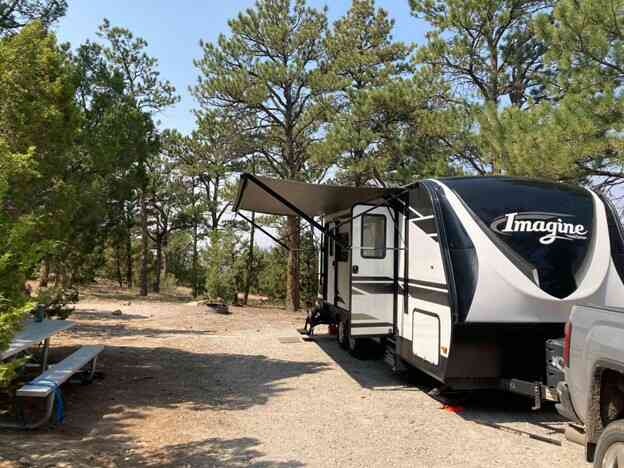
Campgrounds at State Parks
For campgrounds at state parks, I’ve had good luck with getting same-day bookings by just showing up at the park. This can be a risky move. I wouldn’t necessarily rely on it as a core strategy. But, if there is a specific campground you prefer and you’re in the area, it’s worth it to stop by in person to check availability.
Some of these campgrounds have an overflow area in the parking lot where you can spend at least one night, if needed. And it’s possible there’s a no-show or other cancellation. Travel delays do happen.
Even if you can only eke out a night or two using this method, it can help you establish a foothold in the area while you look for something more permanent.
Membership-Based Networks of RV Sites
When in doubt, spend a night at a Harvest Hosts or Boondockers Welcome. As with the tip above, it can help get you a last-minute campsite within a region of your choice while you continue to look for a permanent stay.
If you’re looking for a boondocking spot, a Harvest Hosts winery could be a perfect place to rest until the next weekday when many campsites will open up.
Both Harvest Hosts and Boondockers welcome are annual membership programs. The current annual membership costs are $99 for Harvest Hosts and $169 for Boondockers Welcome.
Conclusion: Finding the Best RV Campsites
Finding the perfect campsite for your RV involves a few key considerations.
You don’t have to camp the same way every time—and it’s more fun if you don’t! I personally prefer a healthy mix of state park campgrounds, boondocking, and the occasional private RV park when I’m in the mood to splurge (and do laundry).
However you travel, following these tips will help you find your perfect campsite, every time.
Happy camping!
The Best RV Parks and Campgrounds
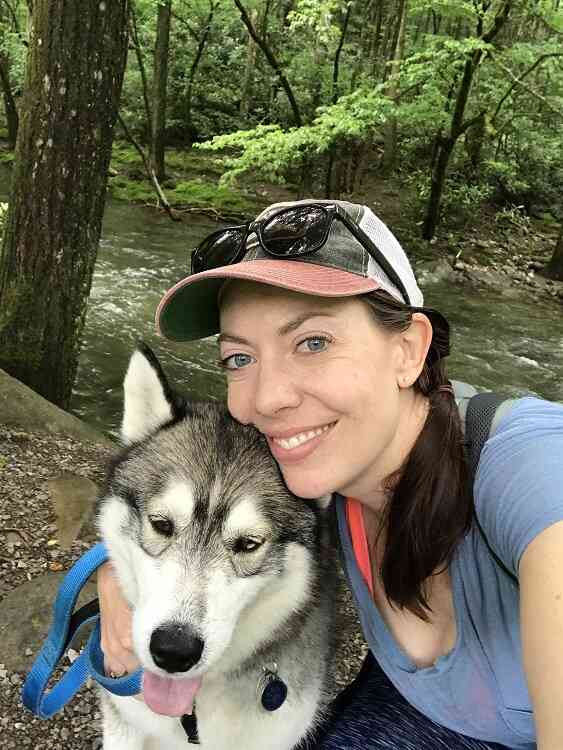
Sarah Kuiken has been a full-time solo traveler for 4 years and counting, but she’s been a solo adventurer for decades. She owns her own copywriting business, Flourish Writing, which she operates from the road. Sarah loves to explore state and national parks with her two dogs, Orion and Piper—wherever they’re allowed, of course. When she’s not whipping up web copy for fellow entrepreneurs, she’s probably out hiking or paddle boarding with the dogs in tow. Learn more about her freelance writing business at FlourishWriting.com.
